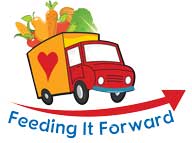Frequently Asked Questions
What about liability?
There is donor liability protection, providing the donor is certain the food has been handled safely and in accordance with state and local food handling guidelines.
For additional education on liability, please visit these comprehensive sites.
California Law Protecting Donors
University of Arkansas, Law School
USDA
- Let’s Glean! – USDA
- Gleaning and Food Recovery -The guide includes national and state laws and regulations pertaining to gleaning and food donation, a comprehensive guide to gleaning and food recovery.
Don’t Waste, Donate: Enhancing Food Donations Through Federal Policy. This report was produced in partnership between the Harvard Law School Food Law and Policy Clinic and the Natural Resources Defense Council.
How do I know my food is being handled safely?
Every volunteer handling food will have access to food safety instruction specifically for food recovery and must pass a food safety test prior to participating. They will not be granted access to the application until they pass this in-depth quiz. In addition, logging/reporting will detail the time and location of pickups and drop-offs so that you know your donation has been handled safely. If you would like to have this information reported back, please notify us.
We understand that your reputation is highly regarded, so we will do everything possible to ensure the food is handled safely and properly.
Is there a minimum donation requirement?
There is no minimum donation size, however, we do request that your donation be enough to feed 10 people or be at least 10 pounds.
If you or your staff are willing to transport to an organization to fight food insecurity, then the minimum amount does not apply.
Is there a maximum donation limit?
No, but please allow advance notification of possible large donations to ensure that the food rescued is utilized by our collaborating organizations.
Large amounts of non-perishable and shelf stable food, such as canned or frozen food, should be donated to the Napa Valley Food Bank. Please contact them in advance at 707-253-6128 or via the website.
Is there food we cannot accept?
Donating food that is no longer suitable for consumption or that has not been prepared, transported, and/or handled in accordance with state and local food handling guidelines cannot be accepted.
For food that has not been prepared in a permitted (licensed) operation — e.g., your home-cooked food — we recommend that you contact organizations listed on the Food Resource Listing to determine if they can rescue your food.
The common sense rules are:
- If you would not feed it to your family and loved ones, then compost it.
- If in doubt, throw it into the compost.
- The official rules can be found in the California Retail Food Code (CRFC).
Can individuals be donors?
To donate to an agency like ours, you must be a permitted food facility per CRFC & Environmental Health. There are many ways individuals can help end hunger. We unfortunately cannot accept individual donations, but you can contact organizations listed on the Food Resource Listing to determine if they can rescue your food.
